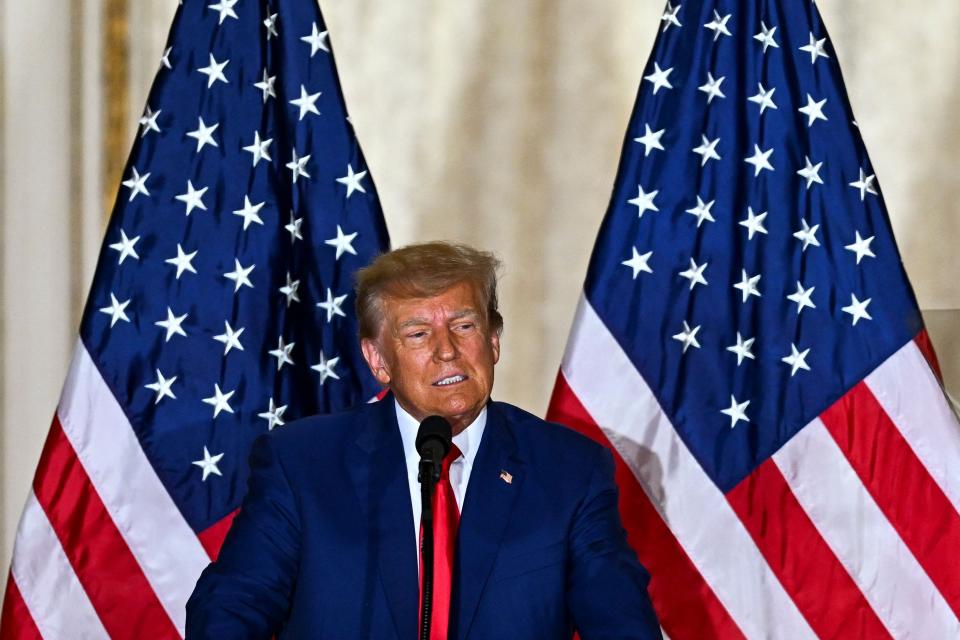Donald Trump fights Manhattan DA's proposed gag order in New York criminal hush money case
Former President Donald Trump's lawyers said he shouldn't be bound by a gag order in his New York criminal case over whether he illegally falsified records tied to a hush money payment to adult film star Stormy Daniels.
Trump's team made the argument in a Monday court filing that responded to the gag order request from the office of Manhattan District Attorney Alvin Bragg. Trump's lawyers said Bragg was seeking an unconstitutional restriction on the Republican presidential frontrunner's speech.
"Speech that falls short of incitement may not be silenced solely because it might inspire others to engage in violence or other unruly behavior—regardless of how predictable (or not) those unruly reactions might be," the Trump team wrote.

The filing comes as Trump nears the March 25 start date for his New York criminal trial, which looks at whether he illegally falsified business records to cover up a $130,000 hush money payment to adult film actress Stormy Daniels, who has alleged she had an affair with the former president. The payment was made by former Trump lawyer Michael Cohen in the run-up to the 2016 presidential election.
Trump has also fought gag orders in his New York civil fraud case and his federal election interference case in Washington, D.C. New York Judge Arthur Engoron issued one of those orders in the New York civil case after Trump, who has frequently attacked judges or prosecutors on social media, shared a post falsely claiming the judge's law clerk was the girlfriend of Democratic Senate Majority Leader Chuck Schumer.
Engoron later extended the gag order to Trump's attorneys in that case, writing that his office had "been inundated with hundreds of harassing and threatening phone calls, voicemails, emails, letters, and packages."
The request from Bragg seeks restrictions against Trump commenting on potential jurors, on prosecutors outside of Bragg, on potential witnesses, on court staff, and on relatives of the lawyers or staff.
Bragg said he modeled his requested gag order on an order in Trump's federal election interference case. A federal appeals court allowed limited speech restrictions in that case that are aimed at protecting witnesses, as well as court and lawyer staff and family members.
Contributing: Bart Jansen
This article originally appeared on USA TODAY: Donald Trump argued against a gag order in his New York criminal case
